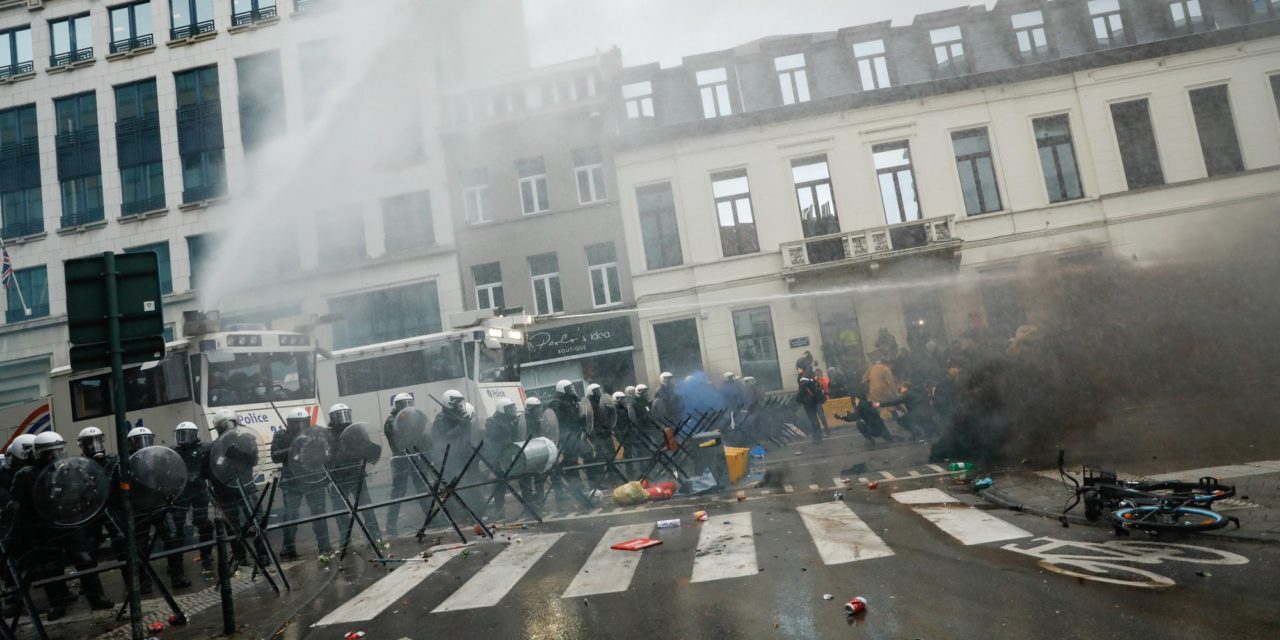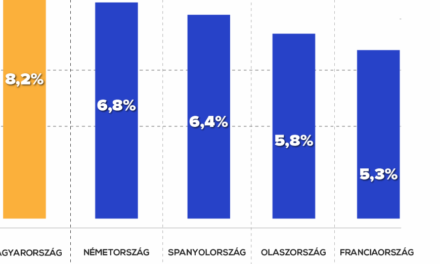The police also used a water cannon in Brussels to disperse the rioters who were involved in the anti-epidemic measures, the French-language Belgian weekly newspaper La Libre Belgique reported on Sunday.
According to the report, around 8,000 people gathered on Sunday afternoon to protest against the new Belgian regulations introduced to curb the coronavirus epidemic, as well as the expected mandatory vaccination, next to the northern railway station of the Belgian capital, and from there they marched to the part of the city that is also home to the institutions of the European Union. At the beginning of the march, nurses and firefighters protesting against mandatory vaccination marched, they wrote.
A group of protesters built barricades out of trash cans and other objects found on the street, lit firecrackers, set off fireworks, and got into a heated argument with the police, who later used tear gas and water cannons against those who refused the order to leave. The police also used drones and a helicopter to secure the scene and identify the troublemakers. No production reports have been received so far.
A disturbance similar to Sunday's occurred in Brussels on November 21, also during a demonstration against the Belgian government's measures against the epidemic. After the movement of around 35,000 people at the time, 44 people were produced.
Last Friday, Belgium tightened the rules aimed at curbing the coronavirus epidemic due to the increasing number of infections and the overload of the health care system. The measures included extending the obligation to wear a mask indoors to children from the age of 6, the Christmas break in kindergartens and primary schools starting a week earlier, already on December 18, and indoor events with more than 400 guests must be postponed.
According to the latest report of the Belgian public health institute, the daily average number of newly registered coronavirus infections was 17,823 in Belgium during the week. Four percent more than the previous week. 3,604 patients with coronavirus are treated in the hospital, of which 803 require intensive care. Both figures rose during the week. On average, 47 people die every day in Belgium from complications caused by the virus, which is 27 percent higher than the data of the previous seven-day period.
Since the start of the epidemic, 27,167 people have died from complications and 1,827,467 people have been infected with the new type of coronavirus in Belgium.
MTI
Photo: PAUL-HENRY VERLOOY/Belga via AFP













